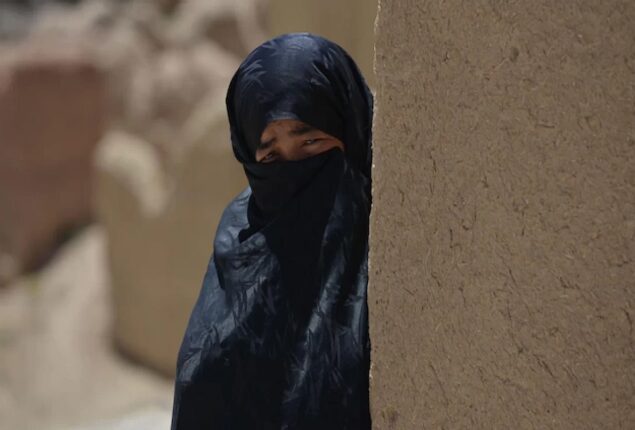T20 World Cup 2022: Pak-Afghan warm-up match called off due to rain
Pak-Afghan warm-up match called off due to rain in T20 World Cup...

The protracted and difficult fight of Afghan women for the right to divorce
Bano, 32, in northern Afghanistan finally mustered the guts to petition for divorce last year after years of violence from her husband.
She asked that her identity be changed since she is running from her abuser and said, “For four years, he beat me every day and raped me every night.” “He would hit me worse if I resisted.”
She claimed that because I was unable to become pregnant, he would make fun of and humiliate me. He came home and kicked me between the legs and blamed me for being infertile after the doctor informed us that he required fertility treatments.
In August 2021, just before Bano’s case was set for a court hearing in the province of Takhar, the government fell apart and the Taliban took back control.
She said that her husband coerced her into returning to his home by threatening to kill her family if she didn’t: “The judges were gone, the lawyers were gone, and with the help of the Taliban, he compelled me to do so.”
The Taliban overthrew the previous legal system after seizing power, established their own judges, and imposed their own interpretation of Islamic law.
Before the Taliban took over, a female judge named Marzia claimed, “There are no female lawyers working anymore, and none of the female judges have been permitted back to work.” She is also running away.
More than 300 female judges presided over courts in Afghanistan that dealt with everything from women’s rights to criminal and terrorism-related crimes.
Since then, hundreds of judges have fled to other nations, and at least 70 female judges are currently in hiding and unable to resume their jobs.
They claim it’s because they don’t think we [female lawyers and judges] are qualified to practice Islamic law and have sufficient knowledge of it, Marzia stated.
When Hizbullah Ibrahimi, the chief of the Taliban Supreme Court’s research and inspection directorate, disregarded the need for female justices during a news conference in September, the Taliban accepted this stance.
He claimed that in the previous system, female judges made decisions based on specific laws and bills and lacked sufficient knowledge of the law and Shariah principles. “… Up until this point, neither we nor they were aware of their need nor the significance of the reintroduction of female judges.
Marzia charged the Taliban with discriminating against women and denying them access to their Islamic rights, which included the right to divorce.
Female victims cannot formally request assistance and relief from the courts without women in the judiciary, she claimed. They are unable to exercise fundamental liberties like the freedom to divorce. It is a significant setback for both the rights of women and all human rights. A sizeable portion of the population no longer has access to legal aid.
Divorce and family violence cases have been heard in the past year, according to Abdul Hameed Jahadyar, spokesman for the justice ministry.
He claimed that 341 divorce cases “were settled” in Kabul alone. He did not specify the number of genuine divorces.
Any woman seeking a divorce can employ a male attorney, and their case will be handled, according to Jahadyar. In divorce situations, “we initially attempt to make peace and reconcile the parties.”
Catch all the World News, Breaking News Event and Latest News Updates on The BOL News
Download The BOL News App to get the Daily News Update & Follow us on Google News.